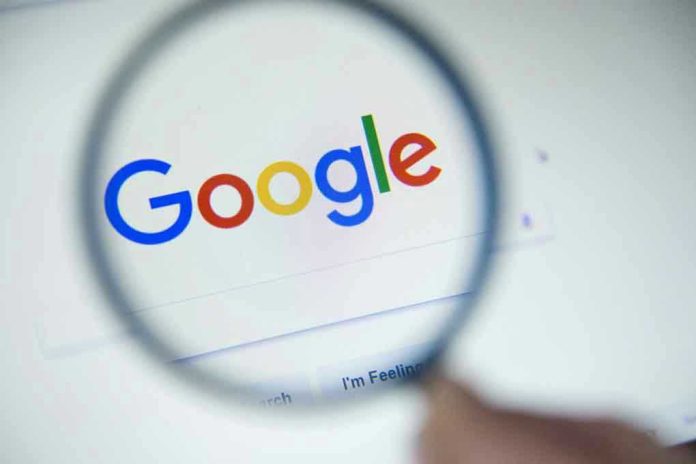
A $30 million settlement exposes how a tech giant allegedly exploited children’s data for profit, reigniting concerns about Big Tech’s disregard for privacy and parental rights.
Story Highlights
- Google agrees to pay $30 million to settle claims it collected children’s data on YouTube without parental consent.
- Lawsuit could affect up to 45 million children under 13 who used YouTube between 2013 and 2020.
- Settlement follows Google’s previous $170 million fine by federal regulators for similar conduct.
- Case intensifies scrutiny of Big Tech’s data practices and raises questions about effective enforcement of children’s privacy laws.
Google’s Settlement Over YouTube Children’s Data Collection
On August 19, 2025, Google agreed to pay $30 million to settle a class-action lawsuit alleging that it illegally collected personal data from children under 13 who used YouTube, all without obtaining parental consent. This conduct, which took place between July 1, 2013, and April 1, 2020, allegedly violated the Children’s Online Privacy Protection Act (COPPA), a federal law designed to shield minors from exploitative online data practices. The lawsuit claims Google monetized this data through targeted advertising, impacting up to 45 million children and their families.
Federal court documents show that the settlement awaits approval from U.S. Magistrate Judge Susan van Keulen in San Jose, California. Google denies any wrongdoing but chose to settle to avoid prolonged litigation and additional reputational harm. Plaintiffs’ attorneys estimate that eligible claimants, potentially numbering in the tens of millions, may receive individual payments ranging from $30 to $60, with up to $9 million allocated for legal fees. The settlement follows a 2019 regulatory action, where Google paid a record $170 million fine to the Federal Trade Commission (FTC) for similar COPPA violations, raising doubts about whether such penalties truly deter tech giants from overstepping privacy boundaries.
Background: COPPA, Big Tech, and Recurring Violations
The Children’s Online Privacy Protection Act, enacted in 1998, strictly prohibits the collection of personal information from children under 13 without explicit parental permission. YouTube, owned by Google, has consistently attracted young audiences with child-friendly content, raising long-standing concerns about illegal data collection and advertising targeting minors. Despite a major 2019 FTC fine and new compliance requirements, allegations persisted that Google continued to harvest children’s data—a pattern that led to the current class-action suit. This case is just the latest in a series of regulatory and legal actions against Big Tech platforms for exploiting vulnerable users, particularly children, for profit.
The affected period coincided with a surge in YouTube’s popularity among children, driven by content such as cartoons and songs. Critics argue that Google’s actions not only undermined parental authority but also put millions of American families at risk, as sensitive data could potentially be misused or exposed. The scale of the class—up to 45 million children—demonstrates the enormity of the alleged privacy breaches and the urgency of holding tech corporations accountable.
Key Stakeholders and Legal Dynamics
Google and its subsidiary YouTube face increasing legal and regulatory challenges, despite their vast resources and influence. Plaintiffs in the case represent children under 13 and their families, seeking compensation and stronger safeguards against future violations. Plaintiffs’ lawyers, motivated by legal fees and privacy advocacy, negotiated the terms with Google’s legal team. Final approval of the settlement rests with the presiding federal judge, while regulatory agencies like the FTC continue to monitor compliance and pursue further enforcement where necessary.
Legal scholars and privacy advocates argue that the relatively small $30 million settlement—compared to Google’s size and prior $170 million fine—highlights ongoing weaknesses in the current enforcement regime. Some advocate for even tougher penalties and proactive enforcement to deter similar conduct by other tech companies. Others warn that, without meaningful consequences, tech giants may simply treat fines as a “cost of doing business,” undermining both parental rights and the intent of federal privacy laws.
Broader Impact and Conservative Concerns
The case has significant implications for American families, the tech industry, and the broader debate over government regulation. In the short term, Google faces financial penalties and further reputational scrutiny, while affected families may receive modest compensation. The settlement sets a precedent for future class-action suits targeting children’s data privacy and may prompt stricter compliance measures across digital platforms. For conservatives, this case exemplifies how unchecked Big Tech practices can erode parental rights and constitutional protections, raising alarms about government and corporate overreach into family life and individual privacy.
Experts agree that high-profile settlements have increased public awareness of online privacy risks facing children, but many argue that true accountability remains elusive. As tech companies continue to develop new ways to collect and monetize user data, vigilant enforcement of laws like COPPA—and broader reforms ensuring real parental control—are essential to upholding American values and protecting the next generation.
Sources:
Google to pay $30 million to settle class-action suit over children’s privacy
Google Reaches Settlement in YouTube Children’s Privacy Case
Google Settles YouTube Child Privacy Lawsuit for $30M
Google paid $30 million for violating children’s privacy through YouTube
Google settles kid privacy YouTube lawsuit














